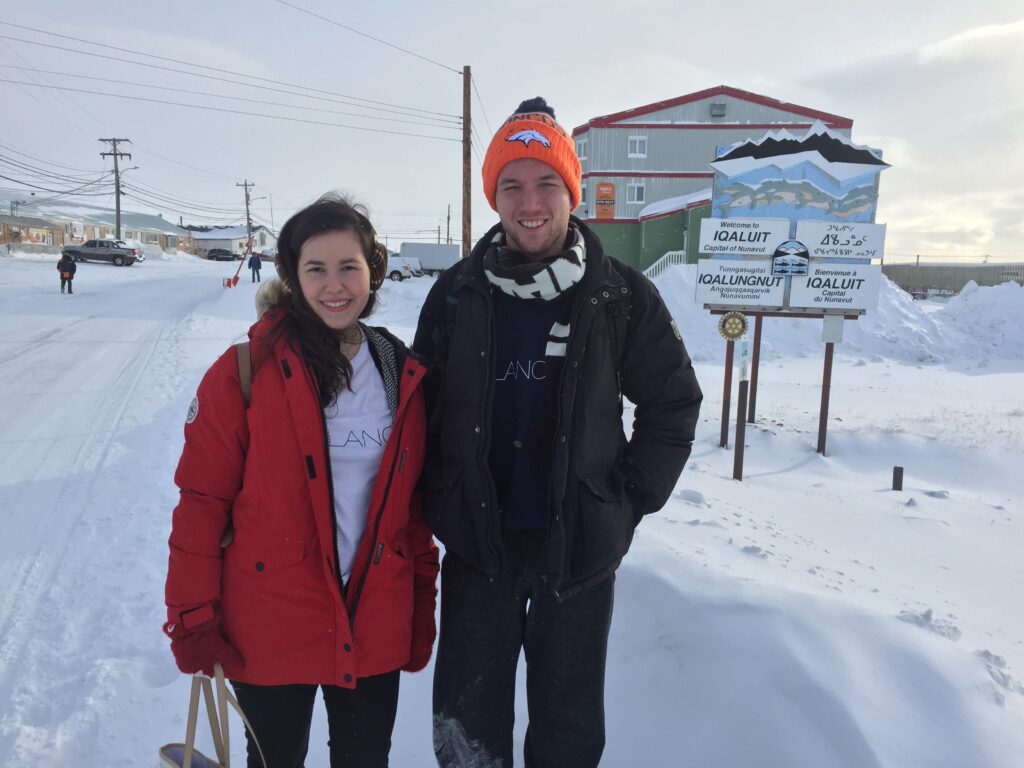Food Security + Business Uncertainty: What Alida Burke Learned Starting a Modular Farming Company
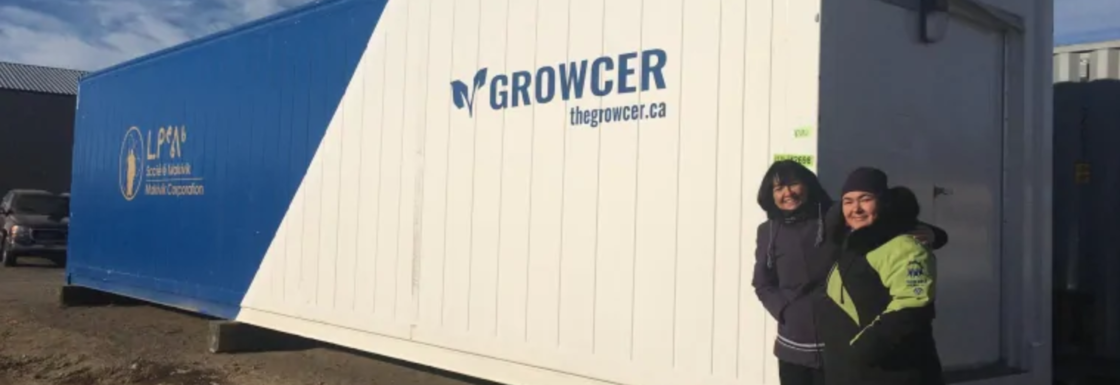
I never thought I would be an entrepreneur. I enjoyed working with numbers and thought my career path would be to get an accounting degree and go work for one of the big four Canadian firms. Ha. Make plans. Life laughs.
Today, I’m the COO of The Growcer, a social enterprise empowering communities to grow fresh produce locally through our hydroponic modular farms. Our indoor farms are the size of a shipping container and can be deployed anywhere – from the Arctic circle to a remote island – to grow leafy, nutritious greens. Each farm also acts like a small business within itself and is staffed by local community members who then sell the produce to the local stores, schools, hospitals, or create a weekly subscription box for community members.
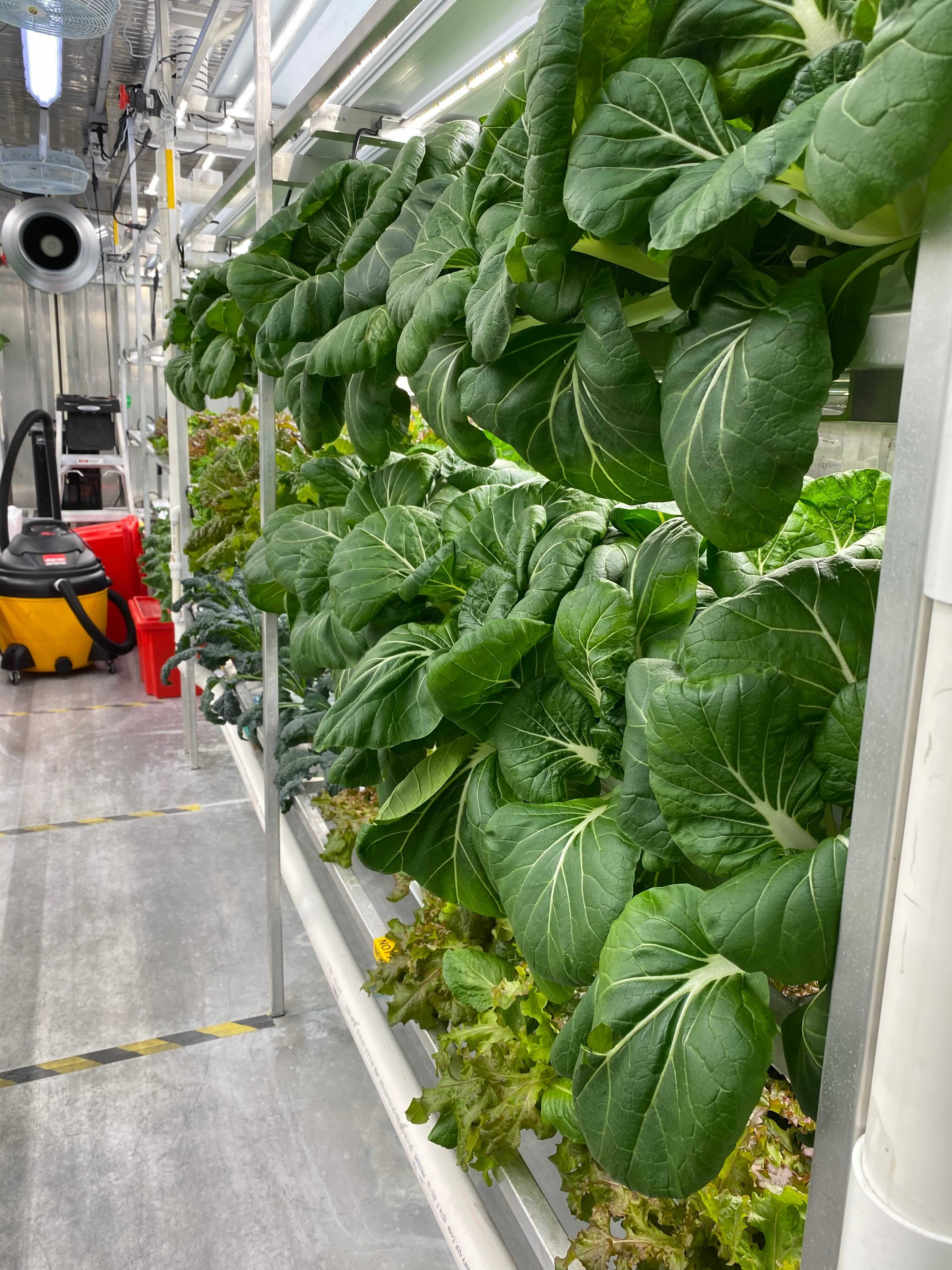
I always get asked, “How did we take Growcer from an idea to a reality?” To answer that question, I want to share how we started, what challenges we faced in our first year, and how we overcame those challenges. If you’re an aspiring entrepreneur or someone paving the way in business sustainability, I hope you’re able to learn something from our story.
How it started
My Co-founder Corey Ellis and I were both apart of a student club at the University of Ottawa focused on social entrepreneurship, Enactus uOttawa. I had always been interested in how to do business in a way that’s socially responsible and hits the triple bottom line – people, planet, profit.
In the second semester of my first year, there was an opportunity with Enactus uOttawa to visit Iqaluit, Nunavut. This trip opened our eyes to the challenges faced by northerners around food insecurity[A3] . We experienced the common “sticker shock” of food prices when we visited a local grocery store and prior to the trip, we were even advised to bring food with us to contain costs.
During our trip, we were able to talk to folks more involved with solving food security up north. It’s an endlessly complex issue and there isn’t a one-size-fits-all solution.
The idea to grow food indoors was one of the ideas that arose during the discussions and became the catalyst for Growcer today. Specifically, using durable, containerized hydroponic (without soil) systems to grow food in the tundra. The modular farm also has sustainable applications outside of the North because it requires less water, less land and fewer resources overall to grow produce than conventional farming.
You are also able to close the gap between producer and consumer, because you can install a modular farm anywhere there’s a flat surface, power, and water connection, and in the process, eliminate emissions associated with longer travel times.
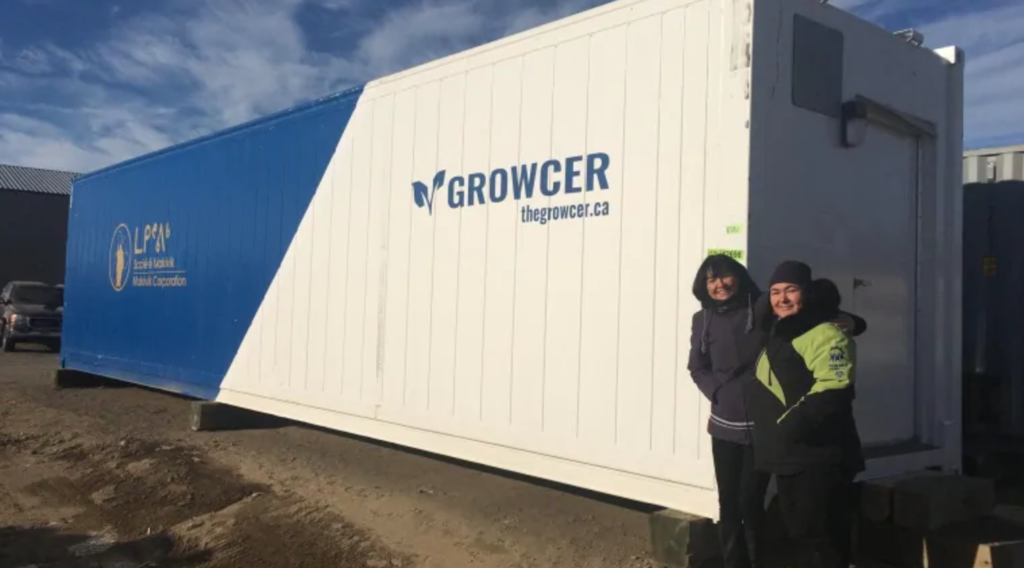
Another aspect we had to consider would be who would operate each unit? After several iterations, it made the most sense to take a decentralized approach and have each farm be locally run. Today, each community runs their own Growcer farm, and they decide what to grow, how much to grow, and where to sell (or donate) the produce. However, they’re not completely alone because our Growcer team stays on to offer farm and project support. Local empowerment is a key pillar of the Growcer model, and it’s also what keeps it exciting – each project is different because each community is different.
Staring at an empty desk
Before we even began partnering with communities to grow locally, Growcer was just an idea. In June 2016, we officially incorporated and got accepted into uOttawa’s Startup Garage program – a four-month pre-accelerator program for student entrepreneurs.
The biggest challenge was not knowing what the next step would be. Entrepreneurship was new to me and there was no blueprint for getting a company like Growcer up and running. You’re sitting at an empty desk, expected to be working on your business, and I’m like “What does that even mean?”
My co-founder Corey was the one talking to communities and realizing there was an opportunity here to make a difference. However, there was still a lot of uncertainty on my end. I had just wrapped up second year and was asking myself: Can I do this? Can the company do this? And more importantly, is this even something I want to do?
I had to become more comfortable with the uncomfortable. I learned to accept that risk and uncertainty were always going to be there when starting something new. In the end, I saw the value in what we were doing, the team we had to do it and the commitment needed to make it happen – so I jumped in wholeheartedly.
Our first year involved gathering research, conducting a needs assessment, understanding key assumptions that would validate our business, making a business plan, and applying to different grants to keep the company afloat. Even after we sold our first Growcer farm in 2017 to the Churchill Northern Studies Centre in Churchill, Manitoba, there was still an air of “Now what? Can we sell another one”?
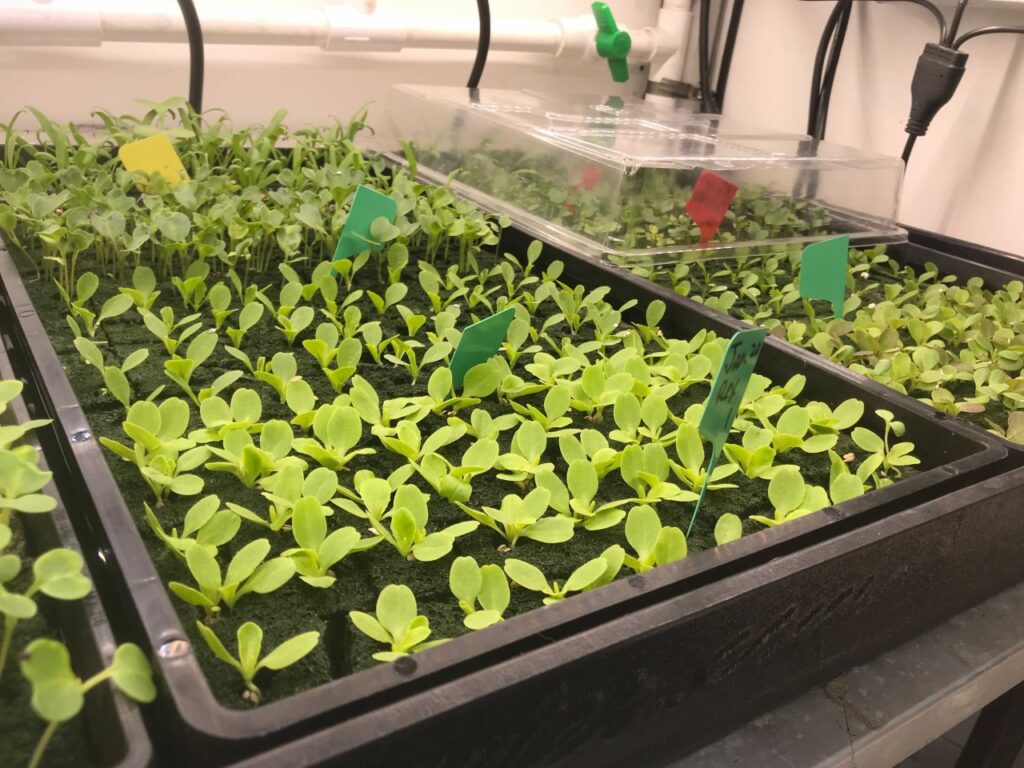
Ask for help
The hardest part of anything is starting. We were able to slowly get over that hurdle with each person we asked for help. It was scary, but essential, for us to be able to approach the greater University of Ottawa network and say “I don’t know where to go from here” and brainstorm next steps. In the early days, I leaned on my co-founder and larger Ottawa mentorship network to answer the daunting questions of “What do we do next?”
I was surprised at the willingness of others to help us succeed. Many of the ideas that make Growcer what it is today came from people asking us “Have you thought of A”? “Have you spoken to Ms. or Mr. B”? And “Have you considered what you’re going to do for C”?
We were two 18 and 19-year-olds with no technical background saying we’re going to build container farms to sell across Canada. Our idea was large with high barriers to entry. But our support network was serious about us, and serious about enabling local food production for more people. Our youth and inexperience could be seen as a disadvantage, but it’s also the same reason we were able to start this seemingly impossible idea in the first place.
In 2018, a full year after landing our first customer in Churchill, we launched Growcer projects in Kuujjuaq, Que., Kugluktuk, Nunavut, and Yellowknife, NWT. That really pushed us to say “We can expand the number of people on our team and go full tilt”.
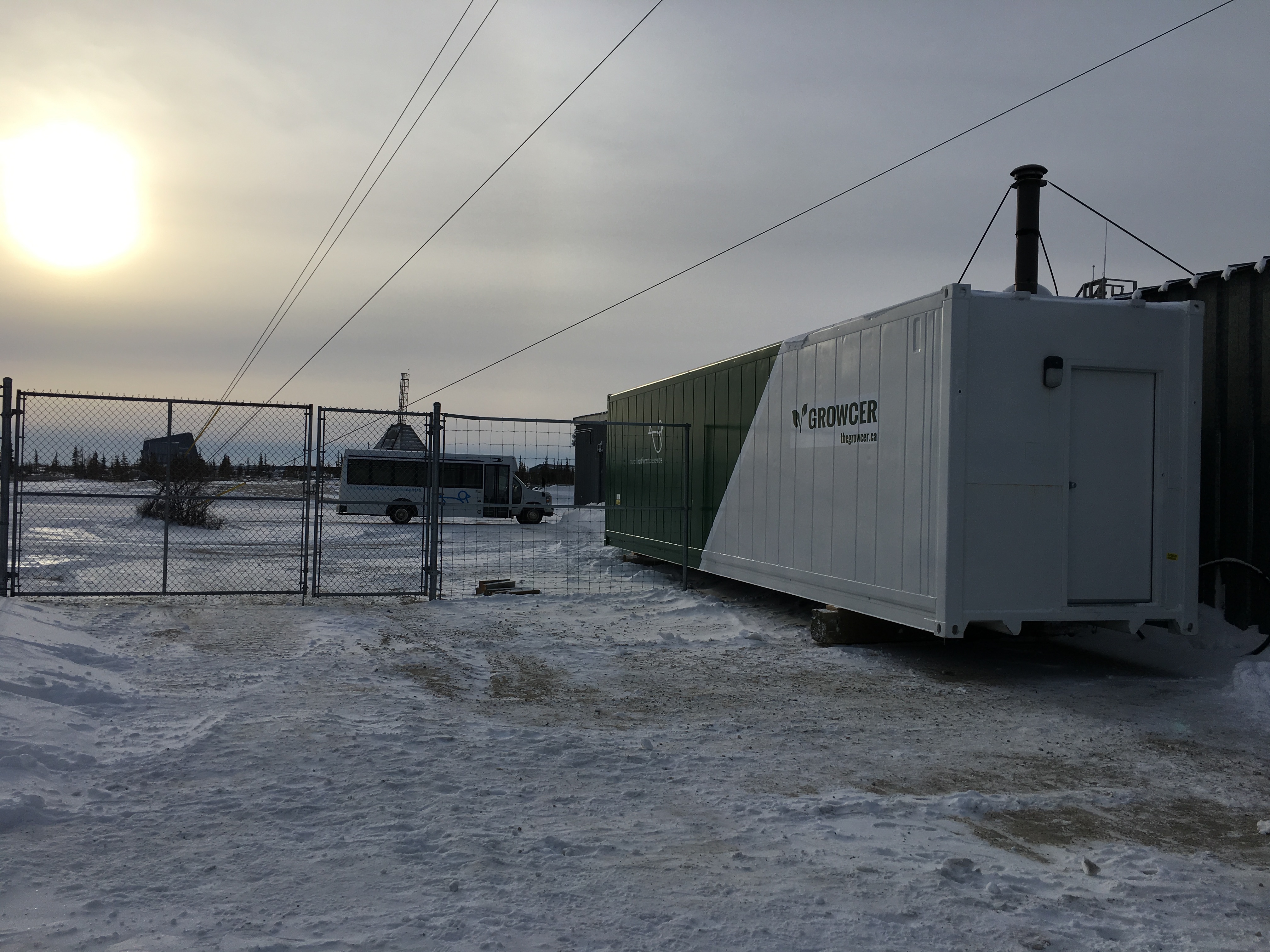
Corey and I were able to define our roles, with Corey gravitating towards the external while I focused on the internal. My role today deals with the internal operations, finance, human resources, and the administrative side of Growcer – perfectly complementing my business partner, and a good fit for my risk averse and “typical accountant” personality type.
It takes a team
In January 2019, Growcer was one of the pitches on a Student Special episode of Dragons’ Den. We held a viewing party and it truly put the amount of people behind us in perspective. To have hundreds of our supporters in one room shows you the amount of external support it takes to start a business. There are so many people behind Growcer’s success beyond Corey and me.
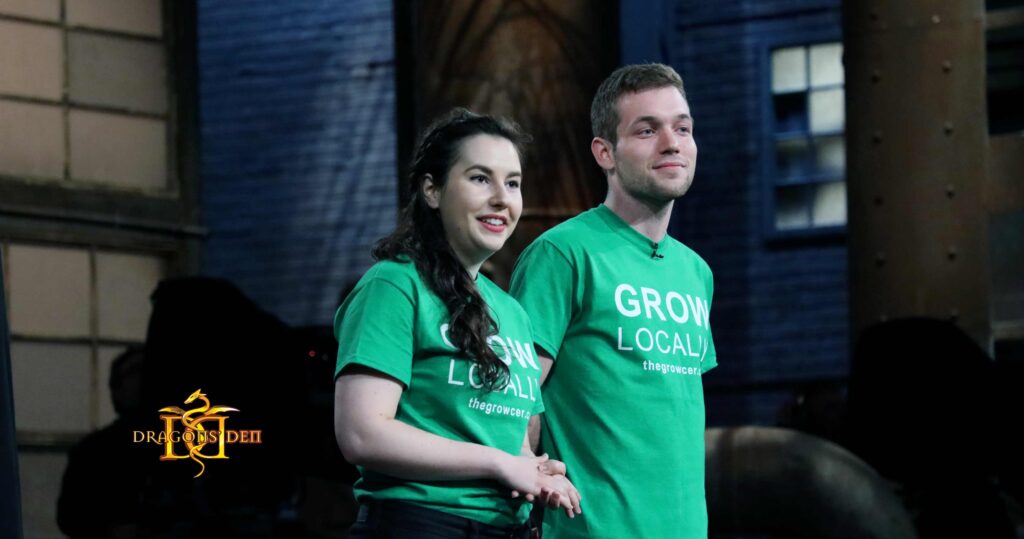
Our customers also motivate us to keep doing what we do. To see the impact individuals have on their communities by growing food – and to be a small part of it – is incredibly rewarding.
The community impact of Growcer has a ripple effect too. We have our own Growcer farm onsite in Ottawa that our research team uses for experiments. Recently, the research team donated produce grown to The Lowertown Community Resource Centre and the Ottawa Hospital. Their research at our Ottawa homebase already helps our customers grow better, and by choosing to donate the produce to our neighbours, it shows how they’re going above and beyond. Their personal values and willingness to make a difference make me feel like “these are my people.”
I hope to see more businesses take on the challenge of treating our customers, teams, and environment differently and in line with a more sustainable future.
Even in 2021, with more than 20 Growcer projects across the country, there’s always the next hill to climb. We’ve figured this problem out, and now there’s another, but now we have more resources. I still seek advice and I rely on the greater Growcer team and their expertise to help as well.
Parting advice
Anyone can start something if you have the drive to succeed.
You will encounter the highest highs and lowest lows. It will require a mountainous amount of grit and resilience to continue but know that what you’re working toward is worth it. Dig deep, consult your support network, and continue.
